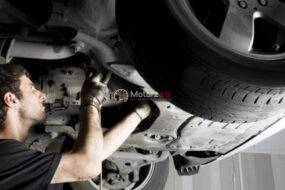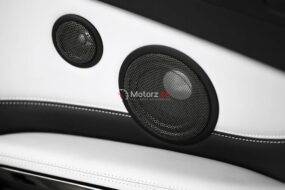Owning a car is a significant investment, and maintaining it properly is crucial to ensure its longevity and performance. Regular car maintenance not only prolongs the life of your vehicle but also helps you save money on costly repairs. If you’re a new car owner or simply looking to improve your car care routine, this beginner’s guide will provide you with essential tips and information.
Regular Maintenance Tasks
Oil Changes:
Frequency: Every 3,000 to 5,000 miles or as recommended by your Car Maintenance owner’s manual.
Importance: Lubricates engine components, prevents wear and tear, and helps maintain optimal engine performance.
DIY or Professional: While you can change your own oil, it’s essential to follow the correct procedures and use the recommended oil type and filter. If you’re unsure, it’s best to have it done by a professional mechanic.
Tire Maintenance:
Tire Pressure: Check your tire pressure monthly and before long trips. Underinflated tires can lead to increased fuel consumption and premature wear.
Tire Rotation: Rotate your tires every 6,000 to 8,000 miles to ensure even wear.
Tire Tread Depth: Ensure your tires have sufficient tread depth for optimal traction and safety.
Brake Inspection:
Frequency: Have your brakes inspected every 6 months or if you notice any unusual noises or vibrations.
Brake Pad Replacement: Replace brake pads when they are worn down to the minimum thickness specified by the manufacturer.
Fluid Checks:
Coolant: Check the coolant level regularly and ensure it’s between the “full” and “low” marks.
Transmission Fluid: Consult your owner’s manual for the recommended service intervals for transmission fluid.
Brake Fluid: Check the brake fluid level in the reservoir and ensure it’s not contaminated with air.
Battery Maintenance:
Terminal Cleaning: Clean battery terminals regularly to prevent corrosion.
Battery Testing: Have your battery tested periodically to ensure it’s in good working condition.
Additional Tips for Car Maintenance
Follow Your Owner’s Manual: Your owner’s manual contains specific maintenance schedules and recommendations for your particular vehicle.
Regular Inspections: Have your Car Maintenance inspected by a professional mechanic at least once a year for any potential issues.
Address Problems Promptly: Don’t ignore warning signs or strange noises. Address any problems promptly to prevent them from escalating.
Use Quality Parts and Fluids: Investing in high-quality parts and fluids can help maintain your Car Maintenance performance and longevity.
Consider a Maintenance Plan: Some dealerships or service providers offer maintenance plans that can provide peace of mind and potential cost savings.
Engine Types and Maintenance
Gasoline Engines:
Regular Oil Changes: Essential for maintaining engine health.
Spark Plug Replacement: Replace spark plugs according to the manufacturer’s recommendations.
Air Filter Replacement: Replace the air filter regularly to ensure proper airflow to the engine.
Diesel Engines:
Fuel Filter Replacement: Replace the fuel filter as recommended to prevent fuel contamination.
Glow Plug Replacement: Replace glow plugs if they are faulty or worn.
Diesel Particulate Filter (DPF) Cleaning: If your diesel engine has a DPF, ensure it is cleaned regularly to prevent clogging.
Hybrid and Electric Vehicles:
Battery Maintenance: Follow the manufacturer’s guidelines for battery maintenance, including charging and storage.
Regular Inspections: Have your hybrid or Car Maintenance inspected by a qualified technician.
Understanding Regular Maintenance Tasks
While the previous blog post provided a general overview of Car Maintenance, let’s delve deeper into some of the key tasks:
Oil Changes
Importance: Oil lubricates moving parts, prevents excessive wear, and helps maintain optimal engine temperature.
Frequency: The recommended frequency varies depending on the type of oil, driving conditions, and vehicle manufacturer. However, a general guideline is to change the oil every 3,000 to 5,000 miles.
DIY or Professional: While changing your own oil can save you money, it’s essential to have the correct tools and knowledge. If you’re unsure, it’s best to have it done by a professional.
Tire Maintenance
Tire Pressure: Underinflated tires can lead to increased fuel consumption, reduced traction, and premature wear. Overinflated tires can also be dangerous. Consult your owner’s manual for the recommended tire pressure.
Tire Rotation: Rotating your tires helps ensure even wear and prolong their lifespan. The frequency of tire rotation depends on your driving habits and the type of tires you have.
Tire Tread Depth: A tire with insufficient tread depth can compromise your Car Maintenance traction, especially in wet or snowy conditions. Use a tread depth gauge to measure the depth of your tires.
Brake Inspection
Brake Pad Replacement: When brake pads wear down to a certain thickness, they need to be replaced to prevent damage to the rotors.
Brake Fluid: Brake fluid absorbs moisture over time, which can reduce its effectiveness. It’s important to have your brake fluid flushed and replaced at regular intervals.
Additional Maintenance Tips
Air Filter Replacement: A clogged air filter can restrict airflow to the engine, reducing performance and fuel efficiency. Replace the air filter according to the manufacturer’s recommendations.
Battery Maintenance: Clean battery terminals regularly to prevent corrosion and ensure a good Car Maintenance connection. Have your battery tested periodically to check its health.
Wiper Blade Replacement: Worn wiper blades can impair your visibility, especially in bad weather. Replace them when they start to streak or chatter.
Belts and Hoses: Inspect belts and hoses for signs of wear, cracking, or leaks. Replace them if necessary to prevent engine damage.
Engine Types and Specific Maintenance
Gasoline Engines:
Spark Plug Replacement: Replace spark plugs according to the manufacturer’s recommended intervals.
Fuel System Maintenance: Clean or replace fuel injectors and fuel filters as needed to ensure proper engine performance.
Diesel Engines:
Glow Plug Replacement: Replace glow plugs if they are faulty or worn.
Diesel Particulate Filter (DPF) Cleaning: If your diesel engine has a DPF, ensure it is cleaned regularly to prevent clogging.
Hybrid and Electric Vehicles:
Battery Maintenance: Follow the manufacturer’s guidelines for battery maintenance, including charging and storage.
Regular Inspections: Have your hybrid or Car Maintenance inspected by a qualified technician.
Regular car maintenance is essential for ensuring your vehicle’s safety, performance, and longevity. By following the tips and recommendations outlined in this guide, you can keep your car in top condition and avoid costly repairs. Remember to consult your owner’s manual for specific maintenance schedules and recommendations for your Car Maintenance.
Conclusion
By following these Car Maintenance tips and tailoring them to your specific vehicle, you can ensure that your car remains in top condition for years to come. Regular maintenance not only saves you money on costly repairs but also contributes to a safer and more enjoyable driving experience.





